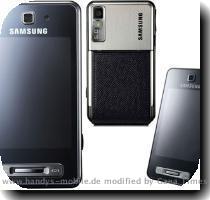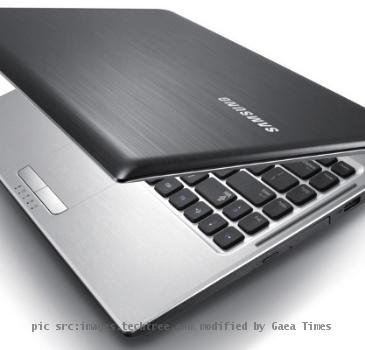Samsung commissions study of health risks at semiconductor plants amid cancer fears
By Kelly Olsen, APThursday, July 15, 2010
Samsung commissions semiconductor safety study
SEOUL, South Korea — Samsung Electronics said Thursday it has commissioned an independent health and safety review of its semiconductor factories in South Korea after employee illnesses and deaths raised fears of cancer risks.
The yearlong investigation will be carried out by a team of leading occupational health and safety experts “who will be given complete access to Samsung’s semiconductor manufacturing facilities,” the company said in a statement.
Suspicion of a possible link between cancer and high-tech manufacturing is not new and concerns are not confined to semiconductors or Samsung. The global technology industry has been beset by lawsuits and investigations over the years.
In one high-profile case, a U.S. jury ruled in 2004 that IBM Corp. was not responsible for cancers that developed in two former employees at a disk drive plant. The suit claimed that harsh factory chemicals caused the illnesses.
Samsung Electronics Co. announced its plans for the health and safety review in April, though did not offer concrete details. It has been attempting to allay public anxieties after a January lawsuit against a workers’ compensation agency involving six people who developed leukemia and lymphoma they claim was caused by exposure to radiation and the carcinogen benzene in Samsung’s chip factories.
Chip manufacturing requires numerous chemicals. Benzene has been frequently used as a solvent in the industry, though Samsung says it has never employed it.
Suwon, South Korea-based Samsung says that between 1998 and this year 25 chip plant workers were diagnosed with leukemia or lymphoma and 10 died, according to spokesman James Chung. The company said in April that there was no risk of contracting cancer at its semiconductor facilities.
Samsung, a major force in the global electronics industry, is the world’s largest manufacturer of computer memory chips, flat screen televisions and liquid crystal displays.
“We have assembled a group of well-respected international experts to ensure this is an objective and transparent review,” Cho Soo-in, president of Samsung’s memory division, said in the statement. “We want to ensure this process addresses any questions about the safety of our semiconductor manufacturing facilities.”
Samsung said that the review will be led by Environ International, which it described as an international environment and health consultancy. It said it would be carried out in consultation with experts from academic institutions including the Harvard University School of Public Health.
The investigation will consist of a “complete review that will evaluate general health and safety risks and hazards, use of carcinogenic substances, potential correlations between the workplace and employee illnesses, and other areas that may be independently identified by the inspection team,” the statement said.
Samsung also said that the study will “determine whether it is feasible to accurately assess the possibility of past chemical and radiation exposure to employees, including a study of the chemicals used in the semiconductor production lines.”
Baak Young-mann, an attorney for the plaintiffs, called that aspect of the probe — investigating the past — the most significant as he said the current situation at Samsung’s semiconductor factories is “environmentally good.”
“We’ll see how they do,” Baak, who is also a trained physician with a specialty in occupational and environmental medicine, said of the review. He called on Samsung to fully disclose all its data and records to the investigators.
Samsung took the initiative in discussing the cancer issue following the March 31 death of Park Ji-yeon, a 23-year-old woman who worked at a Samsung chip plant and had leukemia. She was the fourth person named in the lawsuit to have died. Park’s family dropped out of the suit after her death, according to Baak, leaving a total of five plaintiffs, two of whom are alive.
The suit was filed against the Korea Workers’ Compensation & Welfare Service after it refused to pay compensation following an investigation by occupational safety authorities that didn’t find work-related causes for the cancers. Samsung is not a defendant but is cooperating with the workers’ compensation agency at the trial.
Tags: Asia, Diseases And Conditions, East Asia, Materials, Medical Research, Personnel, Seoul, South Korea



